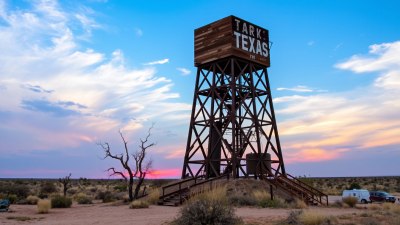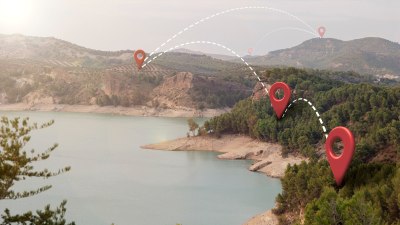What It Feels Like to Go Completely Off the Grid for a Week
Experience the challenges and rewards of a week off the grid. Discover insights and reflections from living without modern conveniences.

Image by rawpixel-com on Freepik
Going completely off the grid for a week is an experience that challenges your perceptions of modern life. It entails a drastic shift from the comfort of everyday conveniences we often take for granted—electricity, running water, and a reliable internet connection. The allure of disconnecting from technology and reconnecting with nature is profound, yet the reality can be both refreshing and daunting. Here’s what it truly feels like to embark on a week-long journey into an off-grid lifestyle.
Preparation for the Off-Grid Experience
The first step in preparing for a week off the grid starts with planning. Knowing the location, required supplies, and safety measures is crucial. Researching the area helps to understand the challenges you might face. You will need to pack essentials such as food, water, a first-aid kit, and camping gear. It’s also wise to inform someone of your whereabouts, as going off-grid means losing the safety net that modern communication offers.
The Initial Shock of Disconnection
Transitioning from the buzzing notifications of your phone to the silence of nature can be jarring. On day one, I felt a mix of excitement and anxiety. The absence of cellular signals and Wi-Fi often leads to initial withdrawal symptoms akin to an addiction. As hours pass, the urge to check for messages fades, replaced by the tranquility of the environment around you. Observing the sights and sounds of nature becomes a grounding experience.
Life Without Electricity
Living without electricity forces you to rethink how you perform everyday tasks. Cooking becomes a chore rather than an automatic process. Adapting to a wood fire for cooking is enlightening; it requires attention, skill, and sometimes a bit of luck. The experience hones your ability to improvise, creating meals that rely more on your surroundings and creativity than on store-bought conveniences.
The Role of Time
Our perception of time shifts significantly when disengaged from technology. The hours become less structured. Instead of working against the clock, you find yourself moving in harmony with natural rhythms, such as sunrise and sunset. This new perspective fosters a sense of freedom and mindfulness rarely experienced in the hustle and bustle of daily life.
Daily Routines and Habits
Without the distractions of the digital world, daily habits evolve naturally. Morning routines might include waking up with the sun, stretching, and brewing a pot of coffee over the fire. Days revolve around exploring local trails, fishing in nearby rivers, or simply lying on the grass, gazing at the sky. This newfound simplicity teaches the value of savoring each moment, an enriching aspect of the off-grid experience.
Rediscovering Nature
The beauty of the great outdoors becomes vividly apparent when you disconnect. Every sight and sound feels amplified—the rustling leaves, the babbling brook, and the cries of wildlife. Nature engages all your senses, creating a powerful connection that often gets dulled in modern life. Watching sunsets and starry nights in unpolluted skies evokes strong emotions, reminding you of the vastness of the universe and your place within it.
The Social Aspect of Going Off-Grid
One misconception of going off-grid is that it's a solitary experience. While some may choose to embark on this journey alone, many find it enriching to share the experience with friends or family. The lack of distractions fosters deeper conversations and strengthens relationships. Whether it’s cooking a meal together or sharing stories around the fire, the social bonds formed are often more profound and meaningful than those cultivated in hectic, technology-driven environments.
Challenges Faced
Life off the grid is not without its challenges. Weather conditions can be unpredictable, and harsh environments can test your endurance. Rain or extreme temperatures can dampen spirits, forcing you to confront uncomfortable situations. It’s this discomfort, however, that builds character, resilience, and adaptability. Each challenge presents an opportunity to learn, grow, and appreciate the comforts of home even more.
Reflections on Technology
During the week spent off the grid, I found myself reflecting on the role of technology in my life. The absence of digital distractions allowed me to think more clearly and creatively. I became aware of how often technology serves as a crutch, filling voids that could otherwise be filled with natural experiences or self-discovery. It made me realize the importance of striking a balance and setting boundaries with technology in my everyday life.
Emotional Responses to Isolation
While the excitement of adventure often dominates initial feelings, the reality of isolation can bring unexpected emotions. Moments of longing for connection may arise as memories of home and loved ones surface. However, embracing these feelings can lead to personal insights and growth. Learning to be comfortable in solitude can be a profound revelation, encouraging self-reflection and inner peace.
The Beauty of Simplicity
Returning home after experiencing life off the grid brings new perspectives. The simple pleasures, like a hot shower or the buzzing of your phone, take on renewed significance. You may feel a sense of gratitude towards aspects of modern life that you previously overlooked. This experience acts as a reset button, allowing you to sort what truly matters and what does not. Intentional living becomes a guiding theme, inspiring you to shed unnecessary complexity in your daily routine.
Post-Grid Transition
Reintegrating into society after a week off the grid poses its own challenges. The ambient noise of city life can be overwhelming, and the ease of access to technology can feel intrusive. However, these feelings lead to valuable insights about finding a balance between the two worlds. A conscious effort to maintain moments of stillness and connection with nature can help bridge the gap between off-grid living and the conveniences of modern life.
A Lasting Impact
Going off the grid for a week significantly transforms your outlook on life. The experience teaches invaluable lessons about independence, self-reliance, and the importance of nature. It fosters a rekindled appreciation for the everyday comforts that surround us, providing a blueprint for a more intentional, balanced, and fulfilling life. From waking up to the sounds of nature to the joy of sharing these experiences with loved ones, the memories of going off-grid remain etched in your consciousness long after you return home. It’s a journey that inspires you to incorporate moments of tranquility and simplicity into your life, allowing you to navigate the modern world with a grounded mindset.











